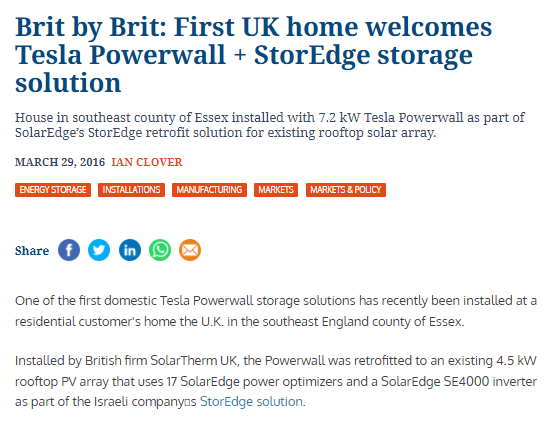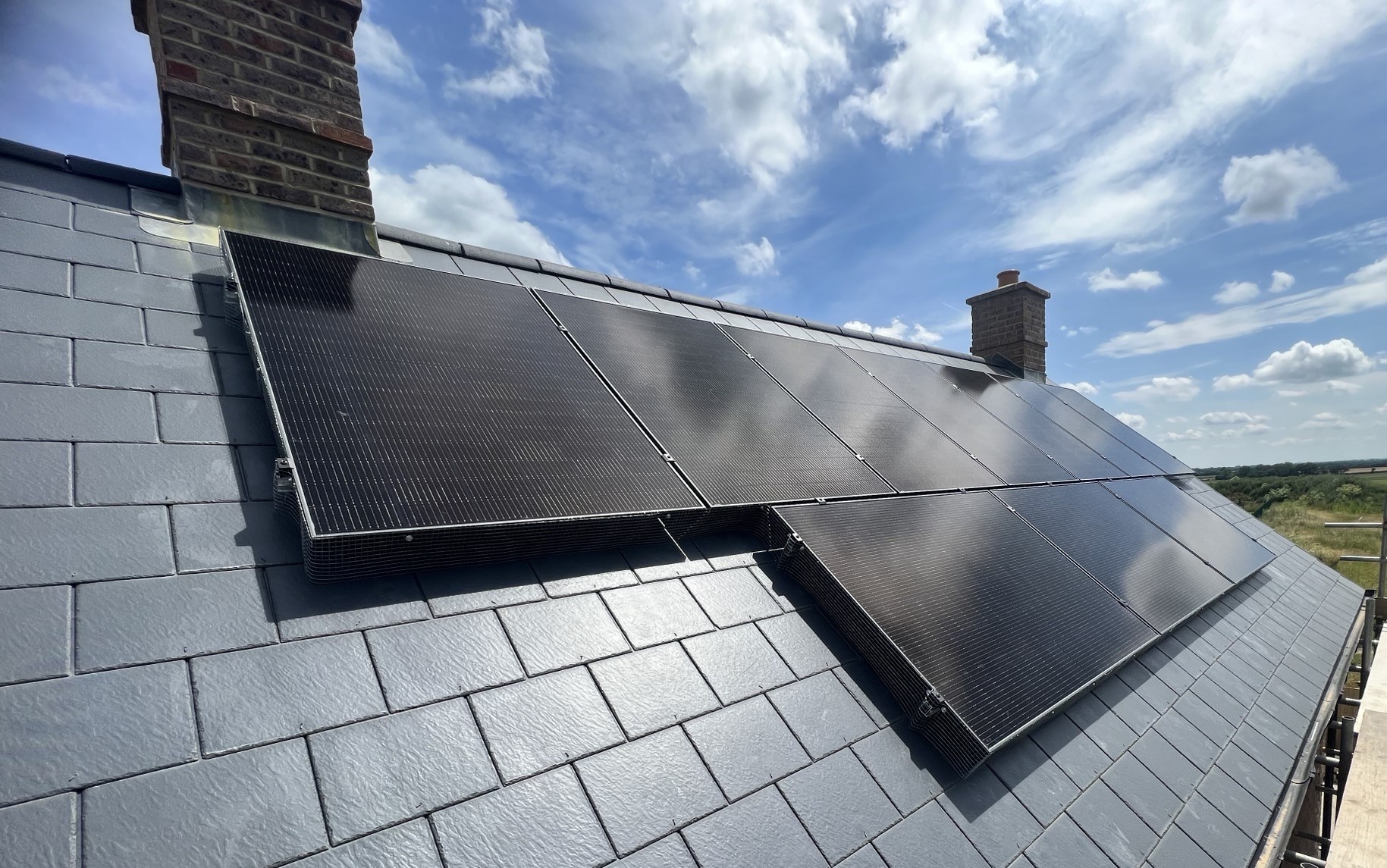This week PV Magazine has featured SolarTherm UK, a strategic partner of the Billion Dollar NASDAQ listed SolarEdge company as the coveted installer of the long awaited home solar battery system.
A house in southeast county of Essex installed with 7.2 kW Tesla Powerwall as part of SolarEdge’s StorEdge retrofit solution for existing rooftop solar array.
One of the first domestic Tesla Powerwall storage solutions has recently been installed at a residential customer’s home the U.K. in the southeast England county of Essex.
Installed by British firm SolarTherm UK, the Powerwall was retrofitted to an existing 4.5 kW rooftop PV array that uses 17 SolarEdge power optimizers and a SolarEdge SE4000 inverter as part of the Israeli company’s StorEdge solution.
Completed on March 22, the install was among the first of its kind in the U.K. as the domestic solar market shifts from the surging growth that has characterized it over the past two years to one of greater self-consumption and storage of solar energy.
The installation of the StorEdge and Tesla Powerwall took four hours, Matthew Jackson, installation manager for SolarTherm UK, told pv magazine. “The installation required just two installers, and the design followed a survey by our in-house surveyor, who compiled a cad drawing and schematics. Apart from the weight (the Powerwall weighs 95kg), there was not much to it other than the complex wiring arrangement,” Jackson said.
The Powerwall was placed on to a north-facing, solid masonry wall at the request of the homeowners. With very little noise associated with the running of the Tesla or StorEdge, this location was preferable because it allowed close proximity to the internal wiring of the PV system.
The installation was a retrofit to an existing solar PV array, but Jackson said that this posed very little in the way of additional difficulties. “The only real complication with a retrofit including this type of battery is where it will physically fit, or where is the safest place for it to be installed,” he said.
The installer added that SolarEdge’s “almost non-existent” failure rate meant that the system support for the Tesla battery is likely to be reliable, and that the install is a close to “plug and play” as any on the market. “The fact that we can set up the system with the StorEdge, and come away and check the following day that it is running online, is invaluable when your teams are working past sun-down at busy periods.”
Jackson added that StorEdge, as one of the few available DC-coupled systems available, meant that the retrofit process was made easier and “alleviated the grey area of stored energy passing back through the generation meter again by night”. This process has been known to generate figures for the feed-in tariff (FIT) that may not later be accepted by energy providers for FIT payment terms.
Last month, pv magazine reported on the first Tesla install in Germany, following the hotly anticipated battery’s roll-out into the Australian and U.S. markets.





